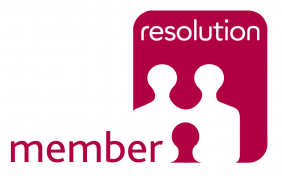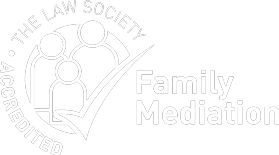Marriage breakdown: the benefits of collaborative law
Collaborative Law is a form of Dispute Resolution that is still relatively unknown and under-used, yet offers a number of benefits to couples whose marriages have broken down and who are looking for an alternative to a lengthy and acrimonious court battle.
Avenues to divorce
Marriage breakdown is never easy – and unlikely to have been something that those involved would have foreseen. And yet remains a common outcome for many couples, although overall divorce rates are falling. What is no longer a given in these circumstances is the traditional image of a couple fighting tooth and nail over everything from children to pensions to the family pets. We have ‘conscious uncouplings’, extended family groups spending Christmas together – and we have a selection of options open to us to resolve the issues that arise out of the breakdown of a marriage that do not involve costly and acrimonious battles in court.
While divorce may well be the ultimate conclusion, there are now a number of avenues to get there, and collaborative law is just one of the alternatives available to couples who are prepared to take a practical and respectful approach to the process of separation.
The ‘four way’ approach of collaborative law
There are a number of Dispute Resolution approaches to divorce now available. Collaborative law is just one of these approaches, and involves the couple and their solicitors in a series of ‘4 way’ negotiations around the table. This differs from mediation when each party is in a separate room and a mediator moves between the rooms, talking to the parties, communicating each position to the other and seeking an agreement. Parties often attend mediation without a solicitor present.
Couples using the Collaborative law approach attend a series of meetings, supported at all times by their respective solicitors. The process is governed by a ‘participation agreement’ which sets out the ‘rules of engagement’ for those involved – both the lawyers and the couple. This will cover points such as agreeing to prioritise the needs of any children of the relationship, and agreeing to be honest, open and courteous throughout the process.
The benefits of the collaborative law process
By making the commitment at the outset to be honest and open and to approach the divorce respectfully, many couples find that the collaborative law approach leads to a much more constructive resolution to relationship breakdown. From a practical perspective, collaborative law reduces costs and avoids the stress of going to court. However, the benefits of collaborative law extend much further.
- Speedy resolution
The collaborative approach allows couples to quickly identify the real sticking points, and allows direct discussion and resolution, without the need for emails or phone calls.
- Creative Solutions
Ultimately, you and your ex will be the ones living with the arrangements that are made, and collaborative law gives you the opportunity to think creatively and put together solutions that will work for you.
- Ownership of the Process
Many couples find the direct involvement in the process helpful as it puts them in control of what happens, supported by lawyers, rather than feeling as if the lawyers are driving the process.
- Improved communication
By sitting around the table and discussing the issues that need to be resolved openly, many couples find that their relationship and their communication improves which can help longer term, especially if there are children involved.
Collaborative law won’t suit every situation
Although there are many benefits to the collaborative law approach, it’s worth pointing out that it isn’t appropriate for all situations. There will inevitably be cases where one or other partner is not prepared to be honest and open, or is only interested in achieving as much as they can for themselves out of the divorce, in which case, collaborative law is unlikely to work. On the other hand, the approach can make the divorce process much easier for couples wishing to resolve the practical issues arising out of their marriage breakdown and offers a number of advantages over a more traditional approach.
Here at Thomas Mansfield, we are fully committed to the collaborative law process and our lawyers are fully trained and experienced. You can find out more about it on our website, and if you’re in a position where your marriage is at an end and you would like to discuss collaborative law, as well as other options, we’ll be happy to talk everything through with you. Call us now on 020 3811 2894.











